
‘Gated’ communities
Residents say barricades, though inconvenient, contribute to decrease in crime
IN some of Kingston’s more gritty communities, barriers stretching across roads is not new. The practice had its early beginnings in the late 1970s when political violence rocked the country. Residents of the affected communities, in a desperate bid to live, blocked roads with just about anything they could find that would deny armed men travelling in motor vehicles easy access and exit to commit drive-by shootings.
Years later, after thugs shed political fighting for gang warfare over drugs and personal vendettas, the practice of setting up road barriers increased as residents continued to be gripped by fear.
Today, the barriers have changed from debris — large and small — to concrete slabs and, in at least one case, a padlocked steel door. And while they have created some inconvenience, residents say they have worked.
“The crime rate has been cut down,” one resident of Parade Gardens, downtown Kingston, told the Jamaica Observer, while others chimed in with stories of shootings that used to take place before.
In that community, some of the barricades were actually set up by the security forces as part of a zone of special operations (ZOSO) in 2022. They are waist high, and practically immovable on human strength alone.
“It is a plus for the community,” another resident said, indicating that only those who wished to do harm were inhibited by the barriers.
About one kilometre from Parade Gardens, just off Slipe Road, is Price Lane, which sits close to Torrington Bridge.
Students from nearby Wolmer’s Boys’ School could once walk freely through Price Lane, but now a steel door, locked with several heavy-duty padlocks, cuts off access. The residents say they’re protecting the young men and teachers from violent crime.
“We used to have a gate there where people go through, but sometimes, when [criminals rob people], they run through, so we lock it off,” said a long-time resident.
Another resident, who did not wish to be named, elaborated: “The youths rob the teachers and run through here and go out onto the main [road], and when the police come they think we are robbing the people. And we know we’re not robbers, so we put a stop to it.
“[When we try to] hold [the robbers], they go for their gunman friends and gunshot fire up here. The only thing we can do is just lock up the gate and the teachers stopped getting robbed; Wolmer’s is our school,” the resident said.
One resident maintained that he felt “a thousand times” safer with the steel door padlocked.
In neighbouring Hannah Town, more serious crimes than just robberies were frequent, and residents were skittish of the press.
The few who did speak to the Sunday Observer told us many of their neighbours had packed up and left the area because of the “sky-high” violence.
Cordoning off sections of that community are several concrete barriers, augmented with a Jamaica Defence Force (JDF) checkpoint as part of a ZOSO similar to what obtains in Parade Gardens.
“[There were] triple murders, double murders, everybody just a dead — I lost my father,” a young man explained.
The young man declined to be named or appear on camera, but was willing to talk about his experience in the area.
“The ZOSO came in and they put some roadblocks; the crime in the community went down but didn’t stop. It stops the drive-bys and some unnecessary shooting, but if they are removed it’s going to cause chaos. The violence is just, I don’t know what’s going on, it’s like it isn’t reducing, it just keeps going up,” he said.
The young man pointed to the barriers and the checkpoint manned by several JDF personnel and said, “Those are our safety.”
A member of the JDF who spoke to the Sunday Observer said that criminal elements were still finding their way into Hannah Town.
With vehicular access blocked, the soldier explained that the men come in on foot to commit violent crimes, which include hold-ups and shootings, though the barriers help somewhat.
While Price Lane residents feel safe and Parade Gardens is seeing a drastic reduction in crime, Hannah Town continues to find its footing. However, in all the communities the Sunday Observer visited, residents expressed a desire for peace and quiet, to be allowed to carry out their business and raise children without the threat of violence, even if it means making their homes inaccessible.
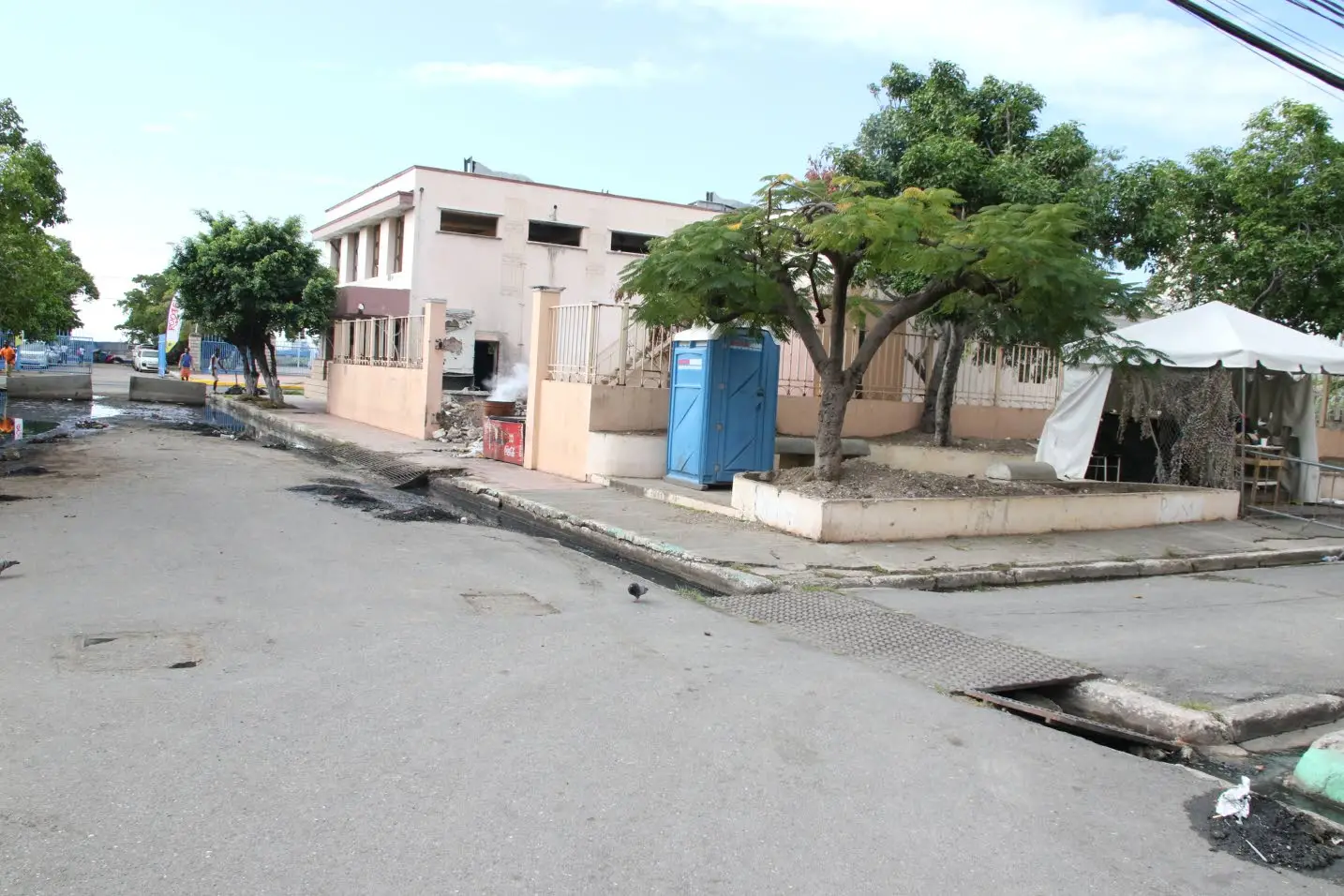
A Jamaica Defence Force checkpoint metres away from a pair of concrete barriers in Parade Gardens. (Photo: Llewellyn Wynter)
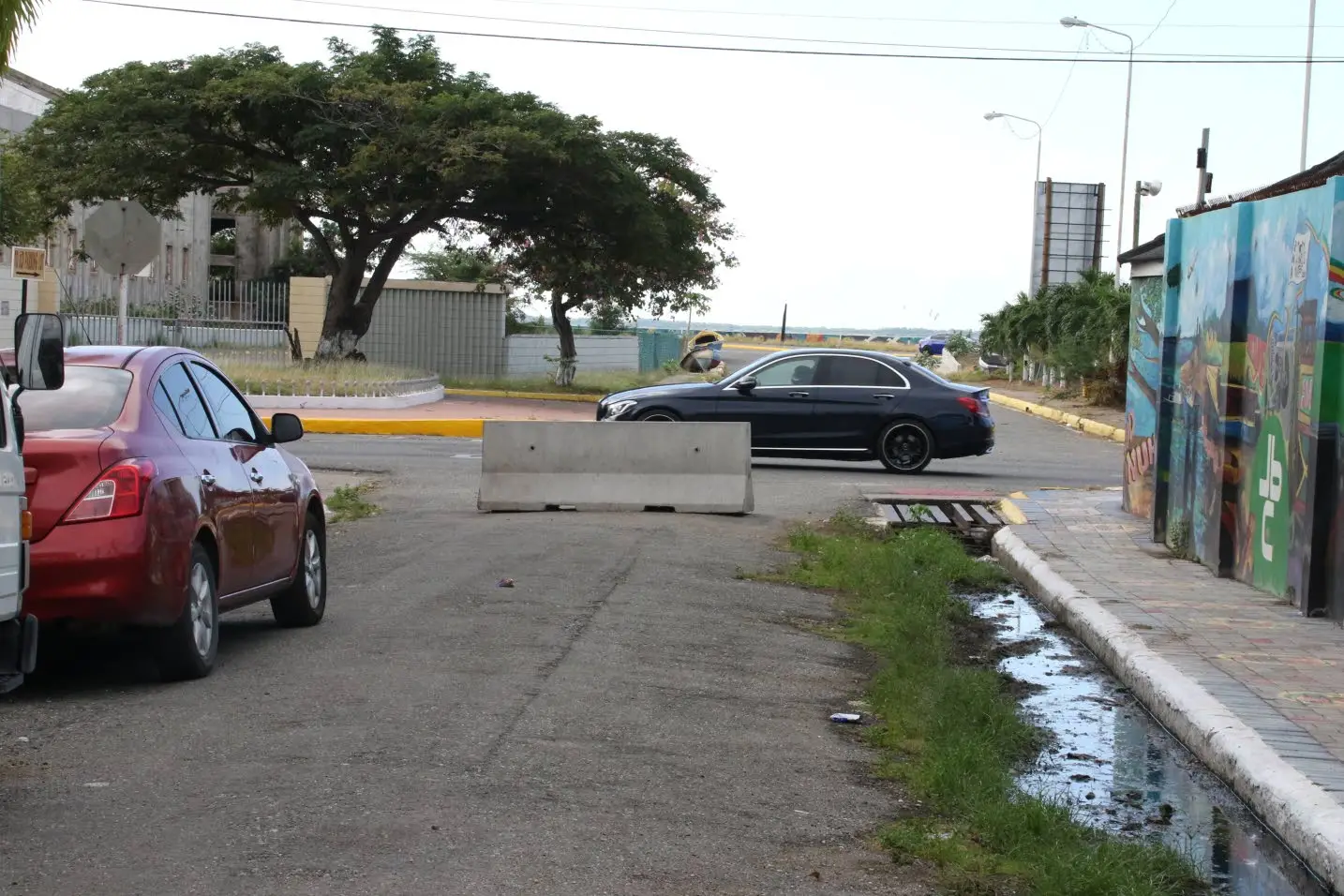
A concrete structure placed at the intersection of Fleet and Harbour streets blocking access to the Parade Gardens community, downtown Kingston.
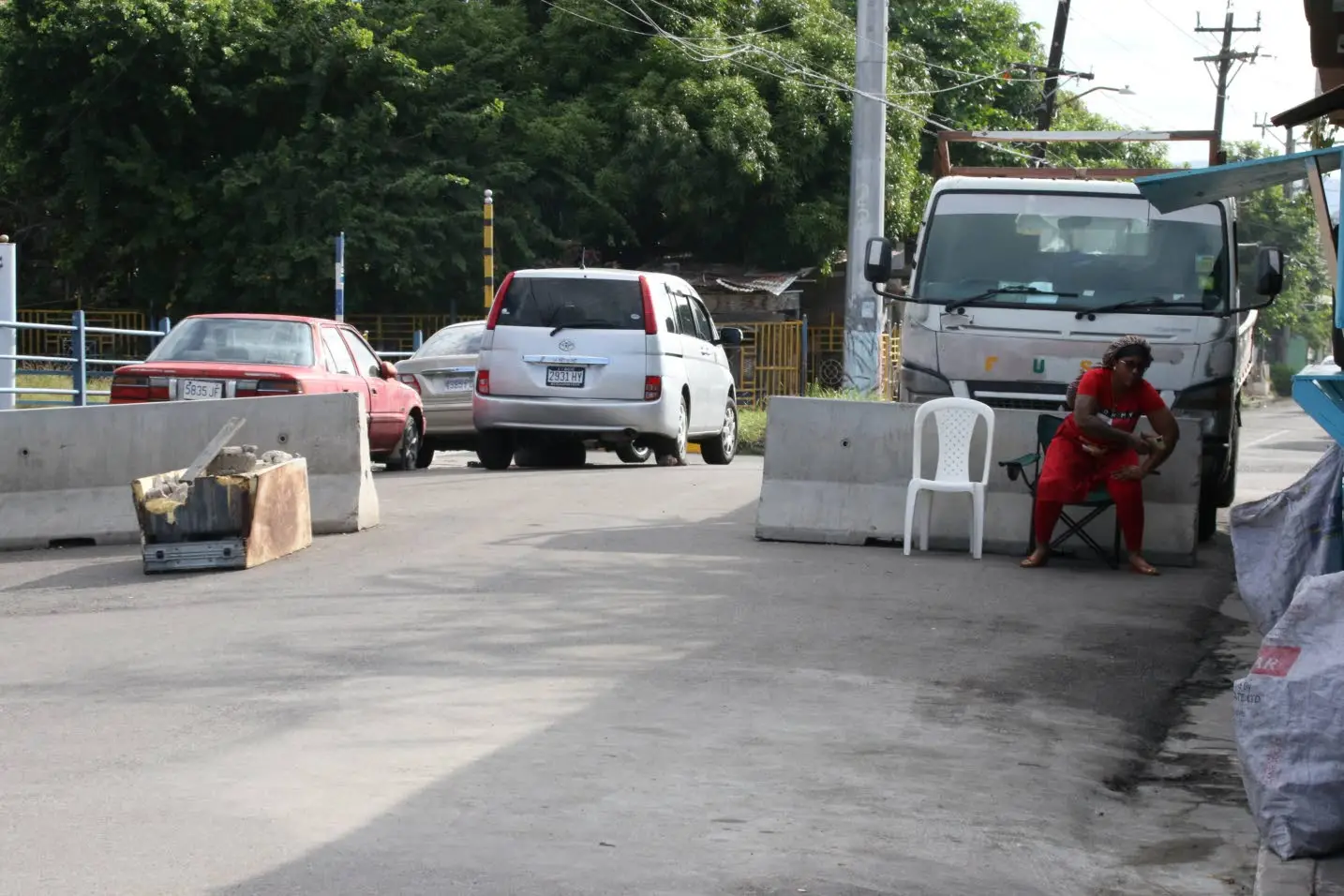
A concrete structure placed at the intersection of Fleet and Harbour streets blocking access to the Parade Gardens community, downtown Kingston. (Llewellyn Wynter)
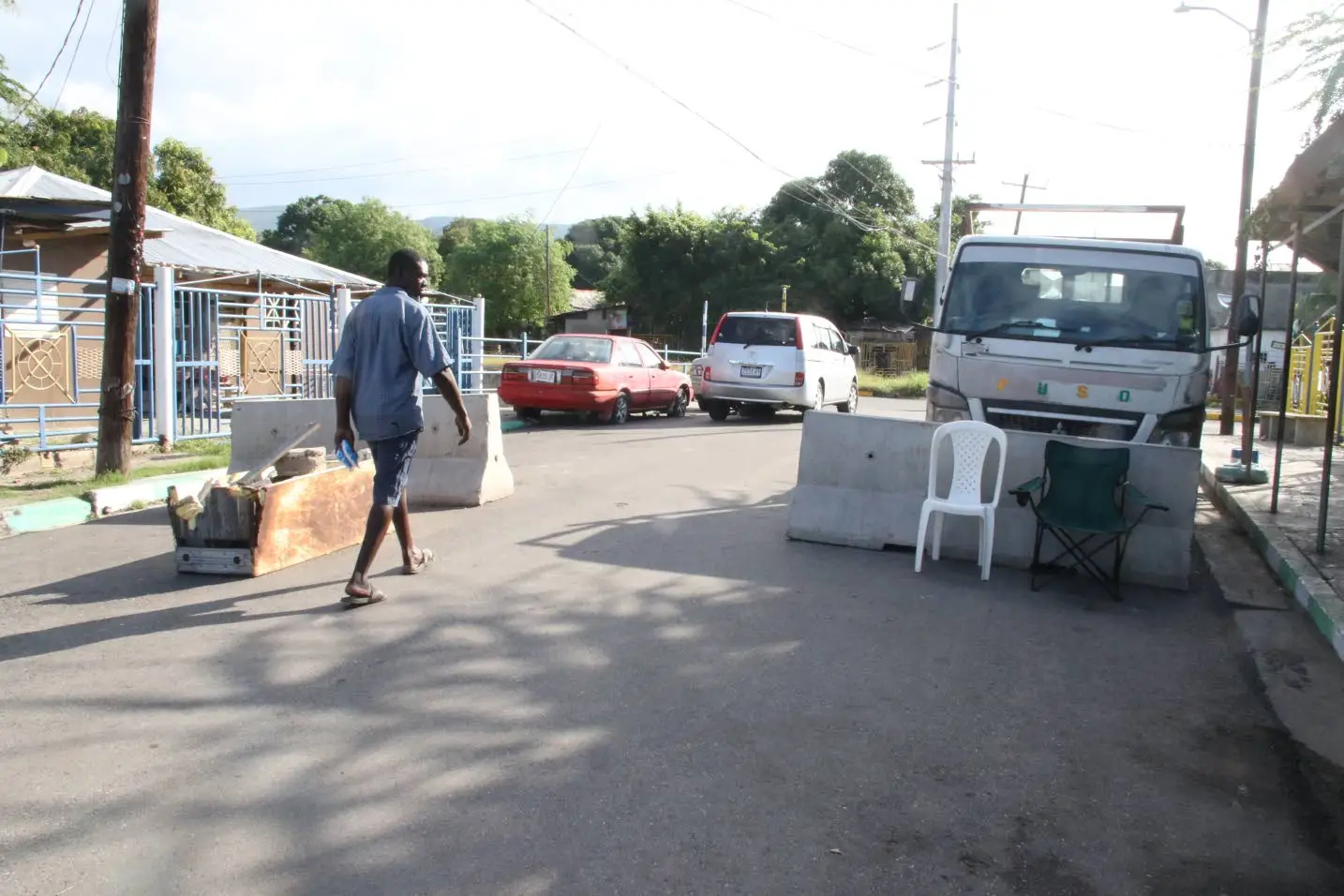
A resident of Parade Gardens gets comfortable beside the concrete barriers that close off the community from vehicular traffic on certain roads. (Llewellyn Wynter)
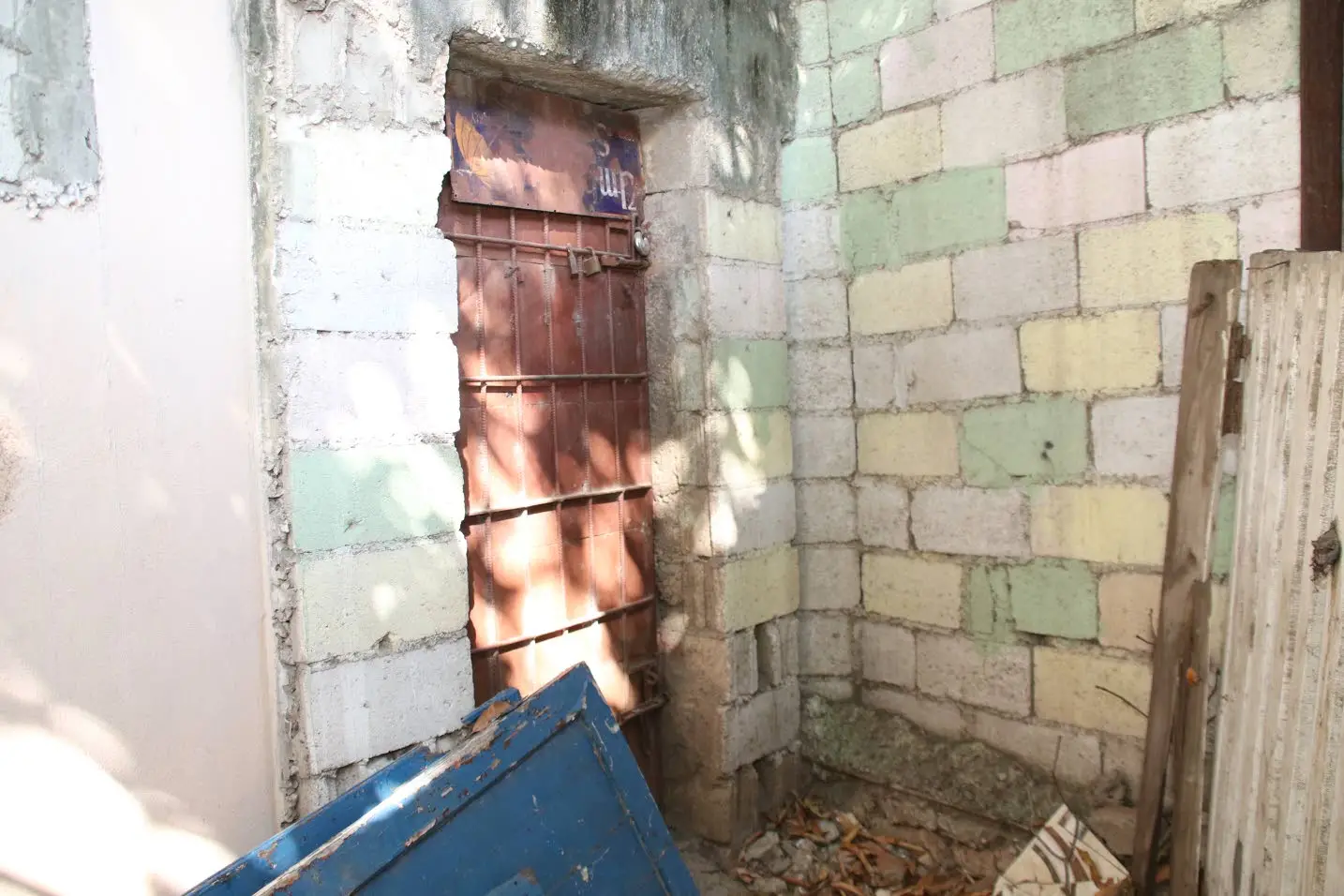
A resident of Parade Gardens walks through a gap in concrete slabs placed in the community by police to curb violence. (Lewellyn Wynter)
























